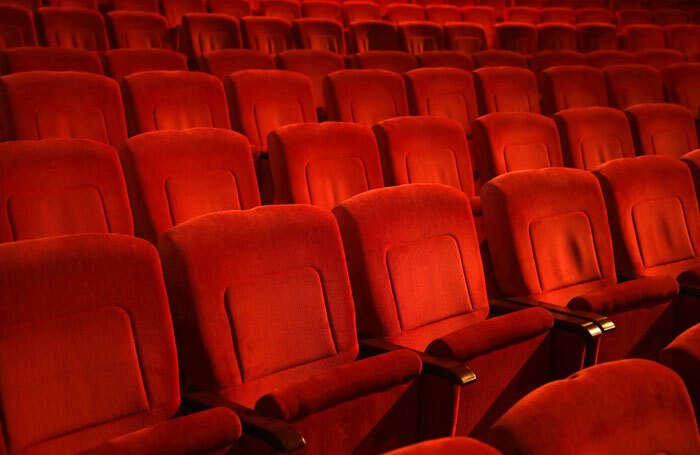Why Regional Theatre Can’t Keep Surviving on Resilience Alone
I was recently told by someone in the arts funding world that the East Midlands is “resilient.” It was meant as a compliment. But the truth is, when people keep calling you resilient, it’s usually because they’ve stopped giving you any actual help.
In the D2N2 region - Derby, Derbyshire, Nottingham, and Nottinghamshire - arts investment is just £4.67 per person. The national average is £8.30. In London? £22.17.
(These figures come from a 2024 analysis by Arts Professional, which compared Arts Council England investment across regions using published NPO data.)
Theatres in our region are delivering extraordinary work on what amounts to very little. And yet still, there are cries to be more “innovative,” “community-led,” “adaptive.” Code for: do even more with less plz.
And yes, it’s true, we are doing more. Nottingham Playhouse’s Spring 2025 season featured the blistering regional premiere of Dennis Kelly’s Girls & Boys and a major adaptation of A Thousand Splendid Suns, Looking ahead, Maxine Peake is set to star as Mary Whitehouse in the world premiere of The Last Stand of Mrs. Mary Whitehouse, a new play by Caroline Bird, running from 5 to 27 September 2025. New writing on a scale many would assume impossible in this funding climate.
Elsewhere, Derby Theatre continues to lead the way in community engagement and co-creation. Independent companies like Fifth Word are going from strength to strength - they’re launching Pop-Up Plays, taking bold new work into non-traditional spaces: cafés, parks, libraries. And New Perspectives continue to champion regional stories and artists, touring work nationally and investing in the next generation. The East Midlands has never lacked talent or ambition.
But we are now at the point where success stories feel like exceptions, not the rule. And they are hard-won. Behind the scenes: burnt-out producers, scrapped tour plans, brilliant freelancers quietly giving up.
Why This Matters Beyond Theatre
Arts funding isn't merely about cultural enrichment; it's a catalyst for that old thing economic growth. According to a report by the Centre for Economics and Business Research, every £1 of public funding invested in the culture sector contributes £5 in tax revenue to the Treasury.
The Arts Council of Wales commissioned research showing that for every £1 of public funding received, £2.51 is returned to the economy - with projections suggesting this could rise to £3.29 by 2035 with just a 10% increase in investment.
In the East Midlands (where productivity is flatlining and high streets are hollowing out ) culture creates jobs, drives footfall, supports local suppliers, and anchors tourism. And that’s before you even factor in the health, education, and community benefits. It’s about creating reasons to stay, to build, to (dare I say it) believe in the place you’re from.
The Risk of Silence
What worries me most, is how normalised all of this has become. Buildings cost too much to run. Programming decisions become shaped by what might be fundable, rather than what’s most urgent. Cities like Derby (population over 260,000) have no regularly funded producing house in the top Arts Council tier.
And yet the strategy documents keep promising “place-based investment” and “levelling up.” It’s hard to level up when the floorboards are falling in.
What Could Actually Help
Rebalance National Funding Formulas
ACE and DCMS (if it’s not broken up into other departments by the time this is published…) need to take regional inequalities seriously. Not just in rhetoric, but in hard cash. I know(!) The country can’t afford to stop children going hungry, or a functioning NHS. But somehow, there’s always money for war, and the latest branding exercise for “Global Britain.” Maybe it’s time we found a bit of money for people, stories, and places instead.
Back Independent Artists with Multi-Year Support
Yes, ACE funds freelancers through DYCP and Project Grants. However, these are short-term, hyper-competitive, and come with admin burdens that favour those with time, support, and existing infrastructure. Not every artist wants to become part of an NPO, and many work solo or in small collectives. We need multi-year funding for individuals and micro-companies - with lighter reporting, optional admin support, and space to develop work without the pressure of constant bidding. If we want a thriving regional ecology, we have to stop treating freelancers like they’re lucky to be here. They are the backbone of the sector. Fund them like it.
Link Local Authority Investment to Cultural Return
If culture keeps high streets alive, reduces social isolation, and creates jobs, show us the maths. Make the argument! And then fund accordingly.
Let Regional Theatres Lead National Conversations
Not as a token 'regional voice', but because the best ideas, artists, and audiences are happening there. Derby Theatre leads in co-creation. Nottingham Playhouse premieres work that tours nationally. Curve builds large-scale musicals in Leicester that rival the West End. These aren’t fringe experiments - they’re setting the agenda. Fund them, platform them, let them lead.
Final Thought
Artists are juggling three jobs and one show. Audiences, when asked, say they want more local stories, more relevance, more access. The East Midlands is full of those stories.
But it can’t keep running on fumes and passion.
We need more than praise. We need policy, redistribution, and a belief that regional doesn’t mean lesser. It means rooted.
